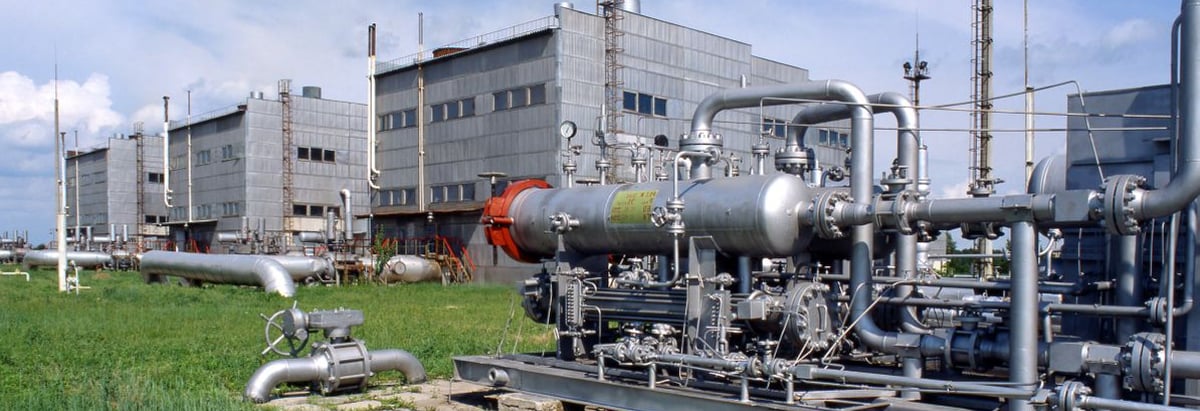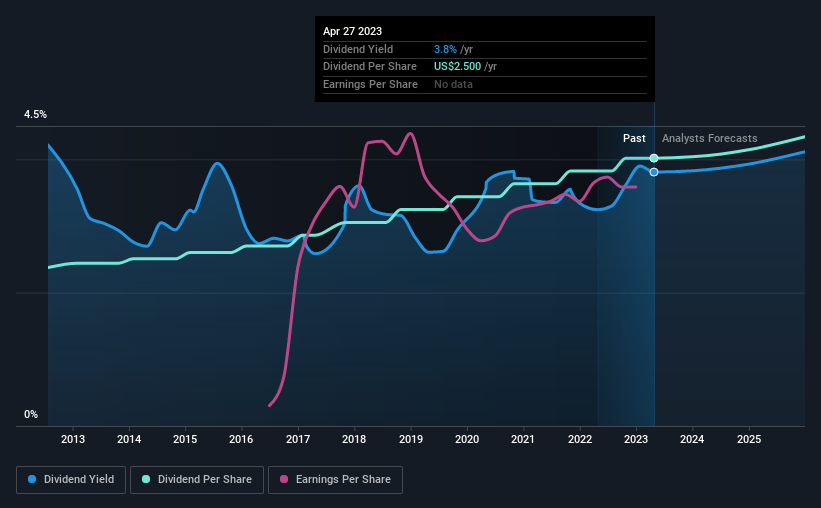
Black Hills Corporation (NYSE:BKH) has announced that it will be increasing its dividend from last year's comparable payment on the 1st of June to $0.625. This takes the annual payment to 3.8% of the current stock price, which is about average for the industry.
Check out our latest analysis for Black Hills
Black Hills' Earnings Easily Cover The Distributions
We like a dividend to be consistent over the long term, so checking whether it is sustainable is important. Prior to this announcement, Black Hills' earnings easily covered the dividend, but free cash flows were negative. In general, we consider cash flow to be more important than earnings, so we would be cautious about relying on the sustainability of this dividend.
Over the next year, EPS is forecast to expand by 4.8%. If the dividend continues on this path, the payout ratio could be 64% by next year, which we think can be pretty sustainable going forward.

Black Hills Has A Solid Track Record
Even over a long history of paying dividends, the company's distributions have been remarkably stable. The dividend has gone from an annual total of $1.48 in 2013 to the most recent total annual payment of $2.50. This works out to be a compound annual growth rate (CAGR) of approximately 5.4% a year over that time. The growth of the dividend has been pretty reliable, so we think this can offer investors some nice additional income in their portfolio.
Black Hills May Find It Hard To Grow The Dividend
The company's investors will be pleased to have been receiving dividend income for some time. Unfortunately, Black Hills' earnings per share has been essentially flat over the past five years, which means the dividend may not be increased each year. Growth of 1.4% may indicate that the company has limited investment opportunity so it is returning its earnings to shareholders instead. This isn't necessarily bad, but we wouldn't expect rapid dividend growth in the future.
In Summary
In summary, while it's always good to see the dividend being raised, we don't think Black Hills' payments are rock solid. While the low payout ratio is a redeeming feature, this is offset by the minimal cash to cover the payments. We would probably look elsewhere for an income investment.
Investors generally tend to favour companies with a consistent, stable dividend policy as opposed to those operating an irregular one. However, there are other things to consider for investors when analysing stock performance. Case in point: We've spotted 3 warning signs for Black Hills (of which 1 doesn't sit too well with us!) you should know about. If you are a dividend investor, you might also want to look at our curated list of high yield dividend stocks.
If you're looking to trade Black Hills, open an account with the lowest-cost platform trusted by professionals, Interactive Brokers.
With clients in over 200 countries and territories, and access to 160 markets, IBKR lets you trade stocks, options, futures, forex, bonds and funds from a single integrated account.
Enjoy no hidden fees, no account minimums, and FX conversion rates as low as 0.03%, far better than what most brokers offer.
Sponsored ContentValuation is complex, but we're here to simplify it.
Discover if Black Hills might be undervalued or overvalued with our detailed analysis, featuring fair value estimates, potential risks, dividends, insider trades, and its financial condition.
Access Free AnalysisHave feedback on this article? Concerned about the content? Get in touch with us directly. Alternatively, email editorial-team (at) simplywallst.com.
This article by Simply Wall St is general in nature. We provide commentary based on historical data and analyst forecasts only using an unbiased methodology and our articles are not intended to be financial advice. It does not constitute a recommendation to buy or sell any stock, and does not take account of your objectives, or your financial situation. We aim to bring you long-term focused analysis driven by fundamental data. Note that our analysis may not factor in the latest price-sensitive company announcements or qualitative material. Simply Wall St has no position in any stocks mentioned.
About NYSE:BKH
Black Hills
Through its subsidiaries, operates as an electric and natural gas utility company in the United States.
Average dividend payer and fair value.
Similar Companies
Market Insights
Community Narratives


